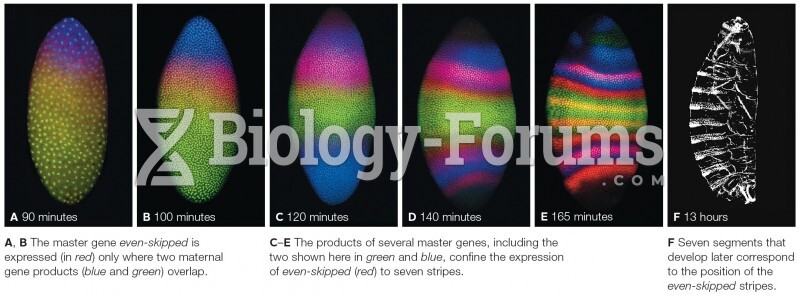|
|
|
Vital signs (blood pressure, temperature, pulse rate, respiration rate) should be taken before any drug administration. Patients should be informed not to use tobacco or caffeine at least 30 minutes before their appointment.
Patients who have been on total parenteral nutrition for more than a few days may need to have foods gradually reintroduced to give the digestive tract time to start working again.
If you use artificial sweeteners, such as cyclamates, your eyes may be more sensitive to light. Other factors that will make your eyes more sensitive to light include use of antibiotics, oral contraceptives, hypertension medications, diuretics, and antidiabetic medications.
Cyanide works by making the human body unable to use oxygen.
Between 1999 and 2012, American adults with high total cholesterol decreased from 18.3% to 12.9%
 Piaget was one of the first to go beyond observable behavior in an attempt to determine how infants ...
Piaget was one of the first to go beyond observable behavior in an attempt to determine how infants ...
 The basal ganglia are clusters of gray matter that control learned movement and are involved with ...
The basal ganglia are clusters of gray matter that control learned movement and are involved with ...





